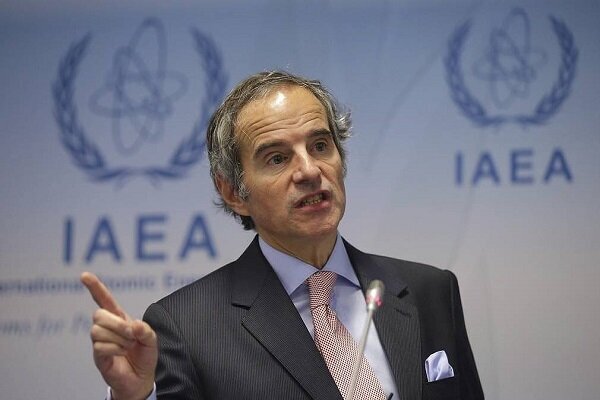IAEA Director urges Iran's full cooperation amidst alleged concerns

TEHRAN - Rafael Grossi, the Director General of the International Atomic Energy Agency (IAEA), has once again called on Iran to fully cooperate with the agency despite Iran’s continued cooperation.
In his recent Introductory Statement to the Board of Governors, reported on the Agency's website, Grossi expressed concern about Iran’s alleged increasing enriched uranium stockpile, stating, “Iran’s stockpile of enriched uranium continues to increase, even though the level of uranium enriched up to 60% has fallen slightly.”
He highlighted the lack of continuity in knowledge regarding the production and inventory of various nuclear components. Grossi noted, “The Agency has lost continuity of knowledge in relation to the production and inventory of centrifuges, rotors and bellows, heavy water and uranium ore concentrate. It is three years since Iran stopped provisionally applying its Additional Protocol and, therefore, it is also three years since the Agency was able to conduct complementary access in Iran.”
Grossi raised alarms about the lack of progress in resolving outstanding safeguards issues, pointing to Iran's alleged failure to provide technically credible explanations for uranium particles of anthropogenic origin at Varamin and Turquzabad.
Concluding, Grossi underscored the need for constructive and meaningful engagement, reiterating his call for Iran to fully cooperate with the Agency.
The alleged concerns continue to rise up despite Iran’s cooperation with the agency.
Back in May 2018, the then-president of the U.S. Donald Trump unilaterally pulled the country out of the 2015 Iran deal, officially known as the Joint Comprehensive Plan of Action (JCPOA), and initiated the so-called ‘maximum pressure campaign’ against Tehran despite its full compliance with the pact. Consequently, Washington's European allies, including France, Germany, and the United Kingdom, aligned with the sanctions by curtailing their trade activities with Iran.
The subsequent Vienna talks, initiated in April 2021 with Britain, France, Germany, Russia, and China, aimed at reinstating the JCPOA. Iran, firm in its stance, insisted on the verifiable removal of all U.S. sanctions and sought guarantees against a future abandonment of the agreement by Washington.
However, discussions hit a standstill in August 2022, primarily due to Washington's unwavering position of not lifting all the sanctions imposed on Tehran by the previous U.S. administration.
